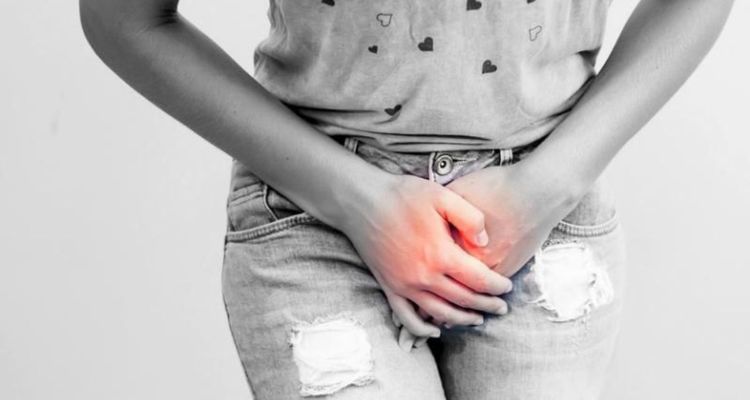In such a busy world, when sleep is already compromised, having Urinary Tract Problems can only aggravate your mental and physical health. A urinary tract infection can be bothersome, and the frequent need to use the toilet leads to sleepless nights. However, you must take this condition seriously because it can lead to complications. Thankfully, remedies can limit pain, treat the disease, and give you relief.
Check out how you can manage your sleep while suffering from a UTI to make the most of your relaxing night (also check the top rated mattresses with great comfort).
Daytime vs. Nighttime UTI Symptoms
At any time of the day, UTI symptoms are painful. The problem is that these symptoms only worsen as the day progresses. Regular, unexpected desires to urinate, pain or a burning sensation while urinating, and difficulty passing urine are all common symptoms.

The symptoms patients experience during the day and night are typically the same. However, these symptoms might make it difficult to fall asleep at night. They not only induce frequent waking but may also result in bedwetting due to the persistent urge and increasing bladder pressure.
How do you get a UTI?
When microorganisms invade the urinary tract, a UTI results. While fungi hardly ever infect the urinary tract, bacteria are the most common trigger of UTIs. E. coli bacteria invading the gut causes most UTIs.
Compared to men, women have shorter urethra. As a result, it’s more probable for bacteria to enter the bladder or lungs, resulting in an illness. Bacteria from the vaginal and anal regions can pass through the urethra and contaminate the bladder. It might occur during sexual intercourse.
Ideal sleeping position for a UTI sufferer
Sleeping position can palliate your suffering. However, finding a safe sleeping posture can be challenging if you have a bladder infection.
Nevertheless, specific ways could assist in lessening the pain and allow you to sleep well. Keeping a pillow below your knees or on your side with a pillow between your legs is the ideal sleeping position for preventing UTIs (also check 10 amazing pillows for side sleeper). You are likely to sleep well that night because it relieves the bladder’s strain.
Should You Limit Fluids?
Limiting your daily fluid intake might seem easy to eliminate urinary disturbances at night, but this is not the best idea. Instead, try keeping yourself hydrated to function your kidneys and other organs properly. You can’t cut your daily water intake, but you can control how much and when you drink it.
Consider drinking plenty of fluids during the day and reducing your intake of liquids in the evening. It can lessen discomfort while keeping you hydrated.
Common Symptoms That Make Sleeping Difficult
A mild UTI may not always cause symptoms you have to deal with, but it might call for intervention by showing signs when the infection is severe. The usual ones that people with conditions counter are the following:
Pelvic discomfort
Since the bladder rests in your pelvic region, the pain from inflammation keeps this area in discomfort. The pressure building up makes it highly uneasy about lying in different positions, especially on the stomach (also for this position check 10 great mattresses for stomach sleepers).
Persistent urge to urinate
When you have UTI, your bladder never feels empty. So, you have to use the toilet again and again. The feeling is so frustrating, as if there is more to come in the bathroom. This worsens at night when urinating to get out of bed again and again, becomes a hassle.
Burning sensation and pain during urination
It accompanies almost all UTIs. It is extremely difficult to pass urine but to avoid pain; people might pass it slowly or even try to prevent it. Unfortunately, this can lead to increased pressure, adding to discomfort.
Frequent urination of small amounts
The person has to use the toilet more often than usual, which could be irritating, especially during the nights when it becomes tough to sleep.
Symptoms of a UTI
Urgent and frequent urination
When you have a UTI, your bladder becomes inflamed and swells. As a result, your muscle in that region contracts and relaxes more and your urge to urinate increases.
Burning or pain while peeing
The most frequent complaint is burning. It can occur before or after urinating. Urinary tract infections can manifest as soreness somewhere while you are peeing. Following urinating, discomfort may indicate inflammation.
Smelly or cloudy urine
Your urine can give a cloudy or foul smell indicating a UTI. Get yourself checked by the doctor and do a further test to confirm it.
Loss of control
The irritation and intense pain can worsen your happy, healthy day. It is because your bladder undergoes involuntary action, such as throbbing urination.
Home remedies for night-time UTI symptoms
The symptoms of UTI can become more unpleasant at night. Your tranquil sleep is not easily acceptable to your body. Bringing it into the spotlight, trying home remedies can be far more beneficial in diminishing the pain and irritations while you sleep.
Some of them are as follows:
Drink Plenty of Water During the Day
Water is never harmful to the body. It promotes healthy metabolism and benefits your immune system. Water is a natural solvent, and surprisingly it acts as a buffer. It will neutralize the acidic pH of the stomach. It will enable the UTI-causing bacteria such as E. coli to flush out the urinary tract.

Drinking excess water can increase the dilution of your urine. Concentrated urine is difficult to excrete, especially in this case, as it will alleviate the pain. More diluted urine will easily spill from the bladder, saving you from absolute misery.
Try to drink more water in the morning and evening because you can make hassle-free movements toward the toilet. Avoid consuming it during sleep because you must wake up multiple times to empty your bladder.
Empty Your Bladder Before Bed
A bladder full of urine can be distressing and lead to intense nuisance in your urinary muscles. Much stretching and abdominal cramps can put you through a challenging test.
The compelling and recordable evidence reveals that an empty bladder before bedtime can save your sleep, and you won’t go to the washroom more often. There will be fewer hindrances to your sound sleep as it will relax your urinary bladder and its muscles.
Take Your Antibiotics as Instructed by Your Doctor
Most antibiotics are effective against bacterial infections; the same applies to UTIs. It will eradicate the bacteria and prevent them from coming back. Your UTI infection can say goodbye in a few days if you follow your doctor’s advice and take your medication properly.
Get a urine test for a targeted prescription to eliminate your body’s UTI. Obstructing the medicine by your means, even if the symptoms are gone, an incomplete course of antibiotics can welcome the infection again. Maybe this time, it will test you harder because of its resistance to that antibiotic.
Avoid Drinking Many Fluids Before Bed
Try to eat more healthy fruits to help your immune system become more active. Increase the intake of different fruits, such as raspberries and crane berries. These will improve your urinary health and help it heal rapidly. Drinking many fluids can only disturb your urinary tract because frequent urination can hinder your sleep, and you don’t wish to invite this situation.
Avoid Alcohol, Coffee, and Soft Drinks
Any substance rich in acidic pH can be problematic for your digestive system. Different fluids or secretions already create an acidic environment through which your stomach fights to neutralize it.
Consuming similar types, such as alcohol and caffeine, will fuel the fire. Alcohol acts as a diuretic and causes more urination, which might hamper your daily routine activities. Secondly, alcohol has a dehydrating effect as it irritates your bladder and causes aches and annoyance.
Try to circumvent caffeine usage because it is the main offender ready to make your life horrible with a UTI. Get away from soft drinks and other stimulant beverages. It will only drive your UTI symptoms worse. Try herbal tea and be careful not to consume anything that could exacerbate your illness.
Usage of Heating Pads and Hot Water Bottles
Abdominal cramps are unfavorable for a UTI patient. The feeling of muscle stiffness and the pain coming in and out is appalling. The best antidote for this is to use a heating pad and place it on your lower abdomen (check 8 great heated mattress pads). It will curb inflammation and disturbed muscle movement guaranteeing you save your night’s sleep.
Key Takeaways: Sleeping with UTI Discomfort
Understanding UTI
A Urinary Tract Infection (UTI) is often caused by E. coli bacteria from the gut. It is more prevalent in women due to their shorter urethra. When not treated, UTIs can lead to sleep disturbances due to frequent urination and discomfort.
Dealing with UTI Symptoms at Night
UTI symptoms, including the urgent and frequent need to urinate, a burning sensation during urination, and pelvic discomfort, often intensify at night. Finding a comfortable sleeping position, such as placing a pillow beneath the knees or sleeping on the side, can relieve some of the discomfort.
Staying Hydrated
While it might seem counterintuitive, it’s crucial to stay hydrated when suffering from a UTI. However, it’s advisable to reduce fluid intake in the evening to prevent frequent nighttime bathroom trips.
Home Remedies and Treatments
Several remedies can help alleviate UTI symptoms at night. Drinking plenty of water during the day can help flush out the bacteria. It’s also essential to empty the bladder before bed to reduce discomfort. Antibiotics prescribed by a doctor can effectively treat the infection. Other helpful measures include avoiding irritants like alcohol, coffee, and soft drinks, and using heating pads to soothe abdominal cramps.
Conclusion:
A urinary tract infection is not a good sleeping partner. You have to deal with constant discomfort and pain that can make your peaceful night the worst nightmare. Frequent urination and abdominal cramps lead to restlessness throughout the night. As a result, your sleep can become a challenge for you (also check the top rated mattresses).
Taking proper medication is the only solution to this problem, so don’t leave it untreated. Otherwise, it can lead to more complications. Trying home remedies can ease your sleep at night. Ingesting a healthy diet, such as vitamin C, can augment your immune system and prevent you from future UTIs.
Sleep with UTI discomfort FAQs
How long do UTIs last?
You can usually treat UTIs. Bladder infections frequently disappear within 24 to 48 hours if you follow the proper treatment. However, the symptoms of a kidney infection could take up to a week.
Why is UTI pain worse at night?
Because urine flow is at its lowest at night or in the morning, many women report worsening symptoms. Additionally, less urination increases the possibility of bladder discomfort and pain from the urine.
How should I sleep with UTI pain at night?
Avoid water and have an empty bladder before sleeping. Set alarms for regular urination during the night. Hot bottles, painkillers or heating pads can help lessen pain.
Should you avoid Sexual contact with UTI?
UTIs are a common infection in both genders, but often in women. It can occur at any age. If diagnosed with a UTI, consult a doctor and take proper medicines to heal it. Avoid sexual contact with your partner and drink plenty of fluids, such as water, to get hydrated. It will help the bacteria to get out of your intestine. It improves the intestinal microbial balance and health and functioning of the large intestine.

